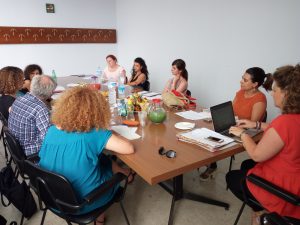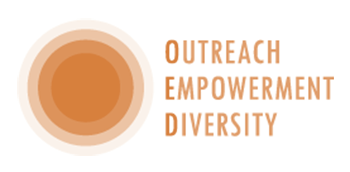IMPLEMENTING OUTREACH, EMPOWERMENT, DIVERSITY. Tailoring appropriate training paths for migrants and developing quality teaching methods were at the center of two seminars held in Modena and Rome this year.
In Modena, the seminar organised by SOLIDARCI in June gathered people from different institutions, schools, Service Centre for Volunteering and from the sectors of social cooperation and the civil society sector to discuss the adult training paths in Modena.
Special attention to migrant women
 From the discussion it emerged that in the province of Modena that some target groups need more attention than others: immigrants and asylum seekers constitute a very large audience of training pathways.
From the discussion it emerged that in the province of Modena that some target groups need more attention than others: immigrants and asylum seekers constitute a very large audience of training pathways.
Within this area, the needs of migrant women have peculiar training needs: personalised, de-localised forms of education, and a non-formal approach to teaching. The need for women to acquire some basic skills in the language of the host country is a priority for local institutions: women of some ethnicities find it difficult to understand what they should do, and this has an impact on their families and on the education of their children.
In addition to the large target of migrant adults, there are many Italians with literacy problems, especially when it comes to digital language skills. Some young adults who have the basic skills might have great difficulty in identifying their relational skills and professional skills to build a satisfactory work and life.
For all these target groups, it is necessary to identify appropriate strategies for inclusion in the training paths. It is also important to report on the political and institutional scene the importance of promoting and supporting lifelong learning programs. Implementing and innovating pre-orientation, orientation, professionalization and life-forming paths is a cultural priority for dealing with social exclusion and social marginality.
The strong interweaving between the world of classroom training and the environments of training and social engagement (eg, the world of volunteering) can be an appropriate strategy for informing people of the opportunities offered by lifelong learning.
Promoting innovative and quality teaching
The seminar held in Rome in September witnessed an interesting discussion between the head masters of Adult Education Centers (CPIA of Rome and the province) who voiced their concern for tracing and monitoring the guidelines for adult education in Italy, and some actors from the Third Sector of Rome and the province who, in various ways, deal with adult education and non-formal education (Fondazione Mondo Digitale, SPES Lazio, Integra Project, Piùculture Association).
During the seminar all the participants, each with their own professional experiences, spoke about key issues concerning adult education, with a specific focus on the promotion and development of innovative and best quality teaching.
The goal was to reflect together key aspects useful to increase and improve the levels of participation and inclusion of adult people engaged in the training paths, proposed by the various agencies (CIPIA, Schools, Training Entities, Third Sector Entities etc.). This goal is considered a strategic focus for the dissemination and appreciation of lifelong learning offers in Europe.
Some of the key conclusions of the seminars were put together by the participants, to mark the next steps:
- Indicating a “to do list” respect to adult policy issues;
- Developing a general system on Lifelong learning (Teaching and Education) involving the different sectors working with adults: formal education (MIUR – CPIA), training (REGION – VET institutions), and non-formal education (Municipality – Non formal education/Voluntaries/Third sector);
- Rethinking the “working life of adult learners” both in terms of professional and occupational skills as a whole;
- Exchanging, sharing and streamlining more existing materials and products (e.g. in the field of competence certification and self-evaluation) produced at national and European level;
- Increasing the participation of disavantged group in lifelong learning.
The seminars thus contributed to further comprehension, suggestions and exchanging of innovation in lifelong learning policies.
Text and photos: Giovanna Maciariello, Paola Maciariello, Valeria Ferrarini
